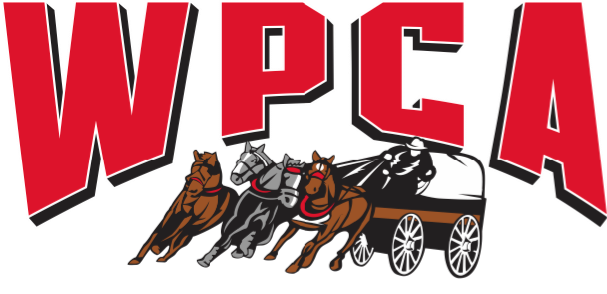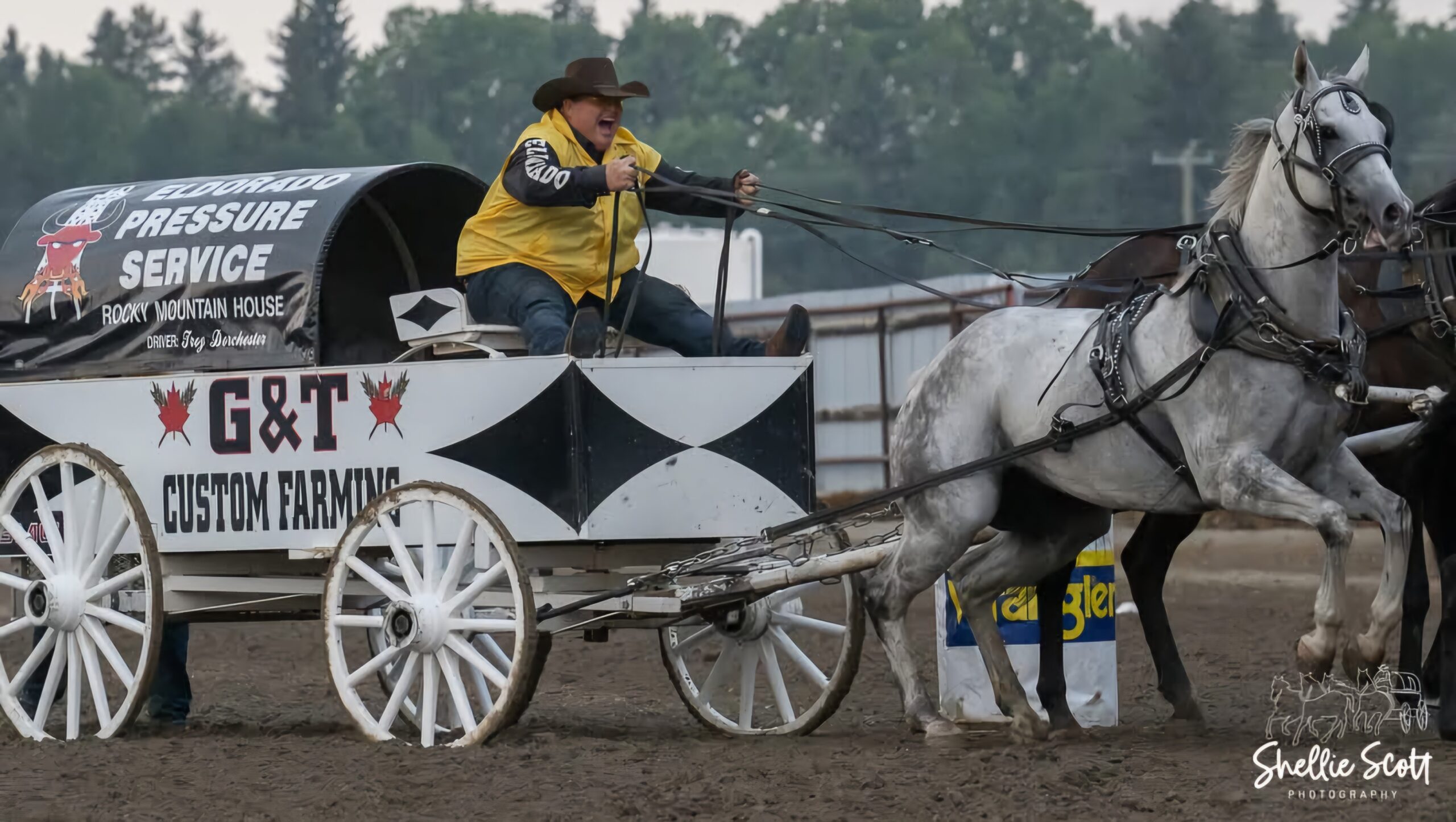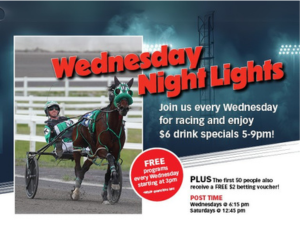By Scott Fisher
Beware.
If you’re ever bitten by the chuckwagon racing bug, there is no quick fix. In fact, the ensuing symptoms have been known to last for multiple generations.
Take Troy Dorchester, for example. The affable veteran driver is gearing up for another season that begins May 28-June 1 with the Grande Prairie Stompede, just as his grandfather Tommy, father Garry, and uncle Dallas did before him, and he’s starting to get excited. “The racing part of it and the excitement, I don’t think you’ll ever get that out of anybody,” Dorchester says. “The politics and stuff get harder to listen to. “But the sport itself, if you’ve ever driven, you’ll always like the race part and figure out that outfit might be the next one you can win with.”
And that’s exactly what the 52-year-old is focused on.
He’s got his teams figured out for his trips off the No. 3 and No. 4 barrels. The other two barrels are a work in progress. “I can win a day money with the short-barrel outfit,” Dorchester says. “I won a day money in Calgary and had a bunch of top-fives last year. “You can have the best horses on paper, but if they don’t start and help you get out of the barrels it doesn’t matter. That’s where I am with the one- and two-barrel outfit. They don’t fire on the horn, they hesitate, but they run hard and come home. “But if you’re getting out-turned off of one, you have to drive around or through everybody. So I’m looking for three of those six (new horses) to work into the lineup.”
The half-dozen newcomers — one from Century Downs and the other five from Vancouver’s Hastings Racecourse — have been going through the sport’s equivalent of training camp for several weeks.
“They look good, but we haven’t gotten into (teams of) fours yet,” Dorchester says. “They’re driving good in twos right now, so that’s good. That usually means they’ll drive good in fours too. “On paper, they should all help.”

Dorchester, who began his career on the WPCA circuit in 1993, has always trotted out powerful, hard-charging teams that often bring race fans out of their seats as he thunders down the lane towards the finish line. But he says it’s hard to get an accurate read on a new horse until he’s got a few races under his bridle.
“You try to find something that has early speed, but can still win at the mile, that’s what I like,” Dorchester says. “Lots of guys went to the speed horses for five furlongs because Calgary’s track is smaller. But if you get a horse to run on the front end for a mile, that’s about as good as you can get.”
“It’s all over the map. I had a horse called Go Pepper Go. (Uncle) Dallas had bought him and broke him but we didn’t pack him. So I bought him. He had never won a nickel at the racetrack, and he didn’t even drive that good.”
“But he started good every time the horn went. So sometimes you get lucky and find one of those horses that is naturally good at starting. It doesn’t matter how fast they are. If you have three others who can run, you can win some stuff.”
The Westerose driver knows a thing or two about winning. In 2012, he won chuckwagon racing’s ‘Triple Crown’ by capturing the Ponoka Stampede, the Calgary Stampede aggregate and the Rangeland Derby. Every driver on the WPCA tour would love to put that kind of a magical ride together. But Dorchester, a two-time winner of the WPCA’s Clean Drive Award, is intent on taking care of his own business and letting the results follow. “I hit a lot of barrels last year,” he says. “I probably would have been top-15 last year if I hadn’t hit so many barrels. “I just want to be consistent like I used to be.”








